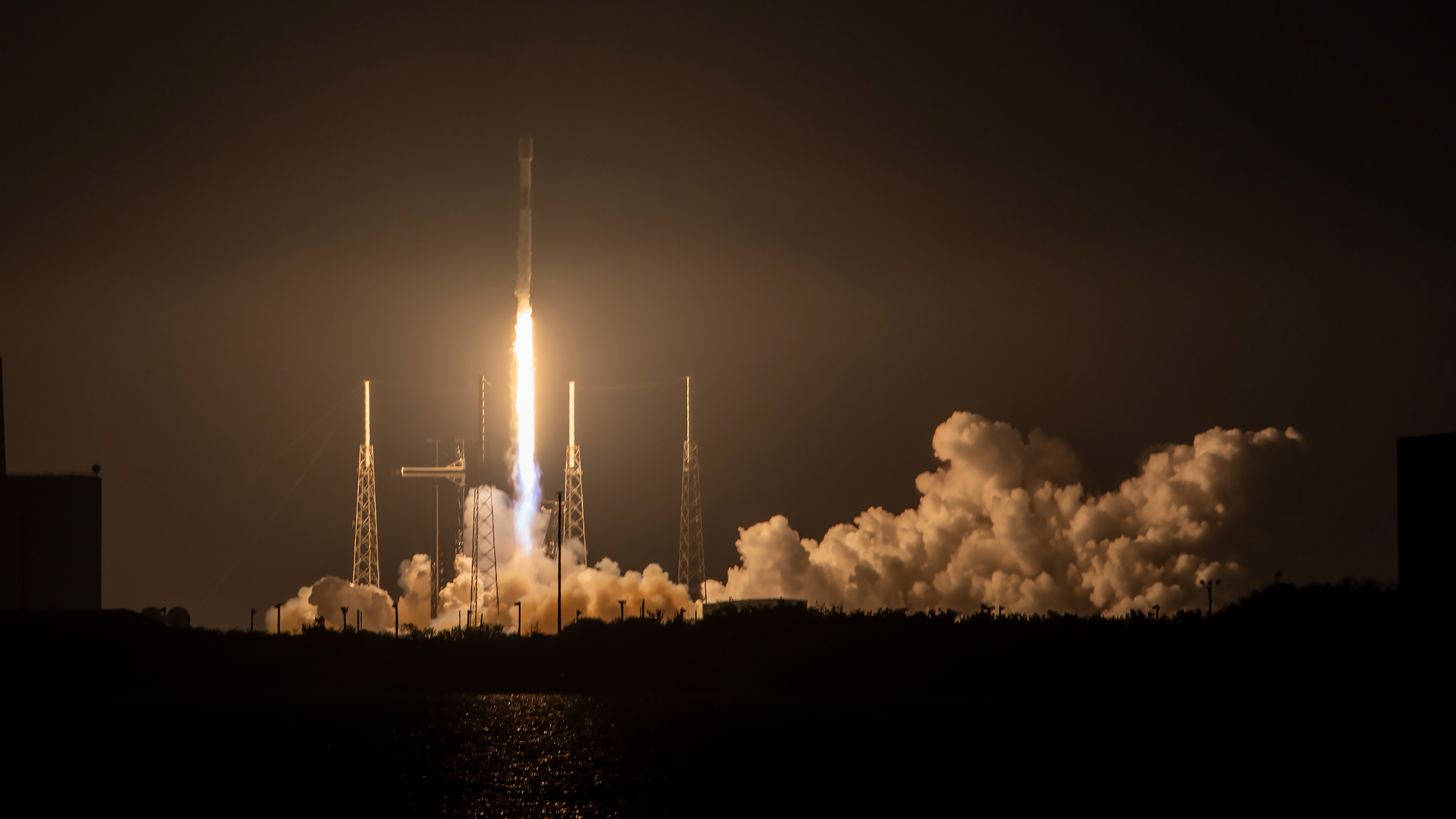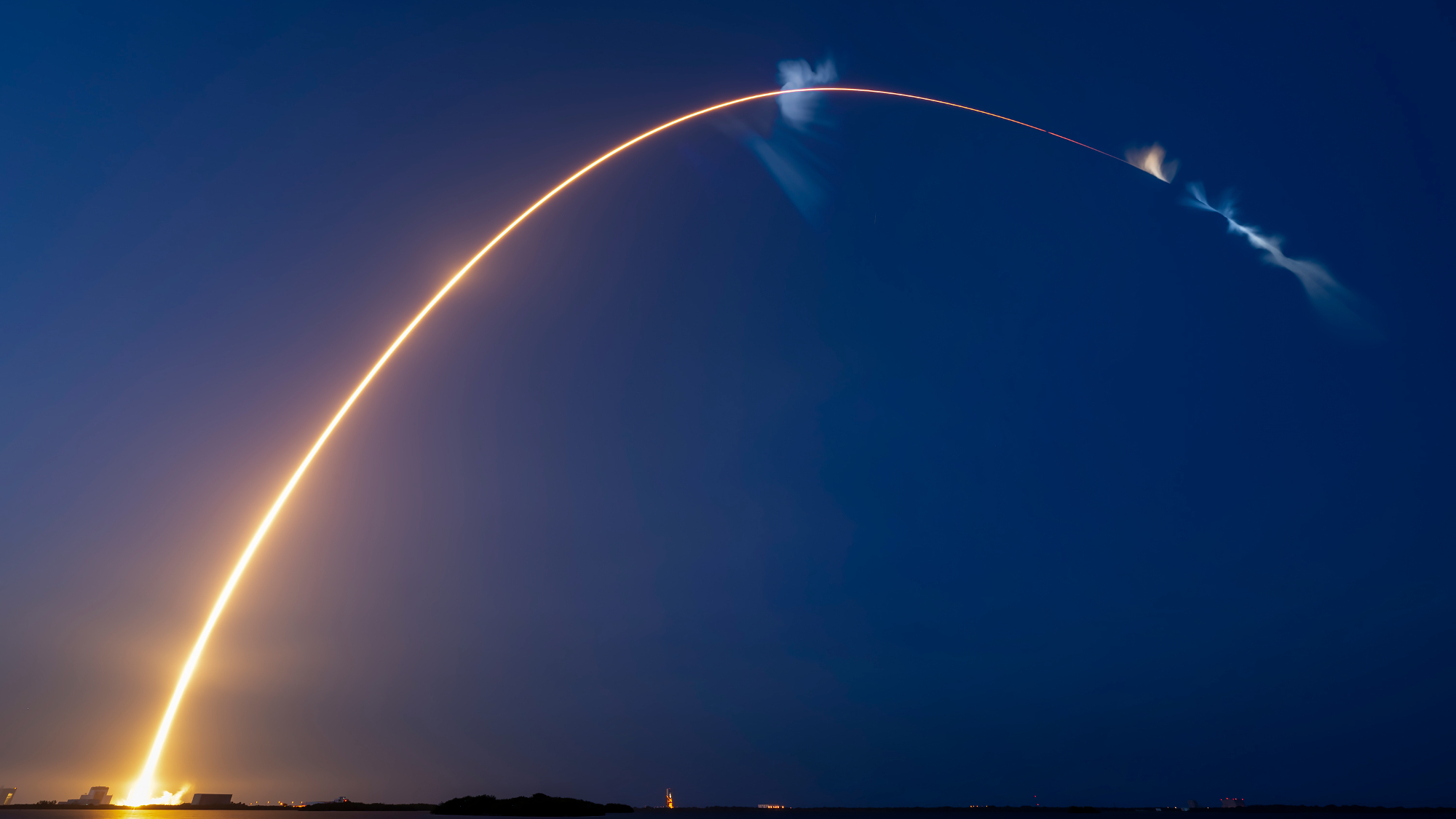A SpaceX Falcon 9 rocket launched for the 21st time tonight (May 17), setting a new reusability record for the company.
The Falcon 9 lifted off from Florida's Cape Canaveral Space Force Station at 8:32 p.m. EDT (0032 GMT on May 18), sending 23 of SpaceX's Starlink internet satellites toward orbit.
The Falcon 9's first stage came back to Earth about 8.5 minutes after liftoff as planned, touching down on the SpaceX drone ship A Shortfall of Gravitas, which was stationed in the Atlantic Ocean.
Related: Starlink satellite train: How to see and track it in the night sky

It was the 21st launch and landing for this particular booster, according to a SpaceX mission description. That set a new record, which may well be tied multiple times in the near future; two Falcon 9 first stages currently have 20 flights under their belts.
The Falcon 9's upper stage, meanwhile, continued carrying the 23 Starlink satellites to low Earth orbit, deploying them there about 65 minutes after liftoff as planned.

Tonight's liftoff was the 51st orbital mission of 2024 already for SpaceX, which aims to launch about 150 times before the year is out.
Get the Space.com Newsletter
Breaking space news, the latest updates on rocket launches, skywatching events and more!
Thirty-six of those 51 orbital launches have been devoted to building out the Starlink broadband megaconstellation, which currently consists of more than 5,900 operational satellites.
Editor's note: This story was updated at 10:20 p.m. ET on May 17 with news of successful launch, rocket landing and satellite deployment.
Join our Space Forums to keep talking space on the latest missions, night sky and more! And if you have a news tip, correction or comment, let us know at: community@space.com.

Michael Wall is a Senior Space Writer with Space.com and joined the team in 2010. He primarily covers exoplanets, spaceflight and military space, but has been known to dabble in the space art beat. His book about the search for alien life, "Out There," was published on Nov. 13, 2018. Before becoming a science writer, Michael worked as a herpetologist and wildlife biologist. He has a Ph.D. in evolutionary biology from the University of Sydney, Australia, a bachelor's degree from the University of Arizona, and a graduate certificate in science writing from the University of California, Santa Cruz. To find out what his latest project is, you can follow Michael on Twitter.









